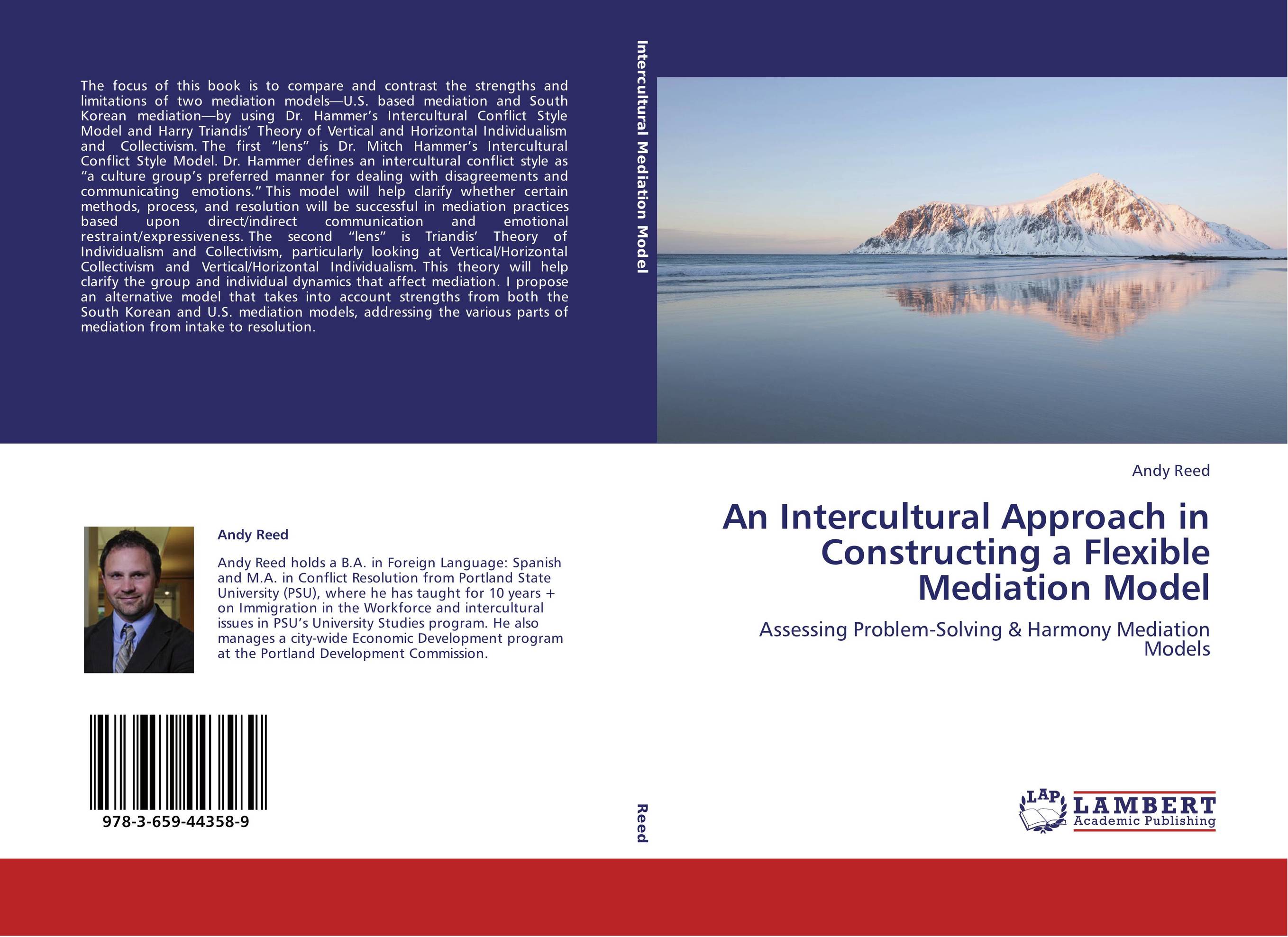| Поиск по каталогу |
|
(строгое соответствие)
|
- Профессиональная
- Научно-популярная
- Художественная
- Публицистика
- Детская
- Искусство
- Хобби, семья, дом
- Спорт
- Путеводители
- Блокноты, тетради, открытки
An Intercultural Approach in Constructing a Flexible Mediation Model. Assessing Problem-Solving & Harmony Mediation Models

В наличии
| Местонахождение: Алматы | Состояние экземпляра: новый |

Бумажная
версия
версия
Автор: Andy Reed
ISBN: 9783659443589
Год издания: 2013
Формат книги: 60×90/16 (145×215 мм)
Количество страниц: 104
Издательство: LAP LAMBERT Academic Publishing
Цена: 32031 тг
Положить в корзину
| Способы доставки в город Алматы * комплектация (срок до отгрузки) не более 2 рабочих дней |
| Самовывоз из города Алматы (пункты самовывоза партнёра CDEK) |
| Курьерская доставка CDEK из города Москва |
| Доставка Почтой России из города Москва |
Аннотация: The focus of this book is to compare and contrast the strengths and limitations of two mediation models—U.S. based mediation and South Korean mediation—by using Dr. Hammer’s Intercultural Conflict Style Model and Harry Triandis’ Theory of Vertical and Horizontal Individualism and Collectivism. The first “lens” is Dr. Mitch Hammer’s Intercultural Conflict Style Model. Dr. Hammer defines an intercultural conflict style as “a culture group’s preferred manner for dealing with disagreements and communicating emotions.” This model will help clarify whether certain methods, process, and resolution will be successful in mediation practices based upon direct/indirect communication and emotional restraint/expressiveness. The second “lens” is Triandis’ Theory of Individualism and Collectivism, particularly looking at Vertical/Horizontal Collectivism and Vertical/Horizontal Individualism. This theory will help clarify the group and individual dynamics that affect mediation. I propose an alternative model that takes into account strengths from both the South Korean and U.S. mediation models, addressing the various parts of mediation from intake to resolution.
Ключевые слова: Conflict resolution, negotiation, Mediation, emotion, Problem-solving, harmony, intercultural, South Korea, communication



